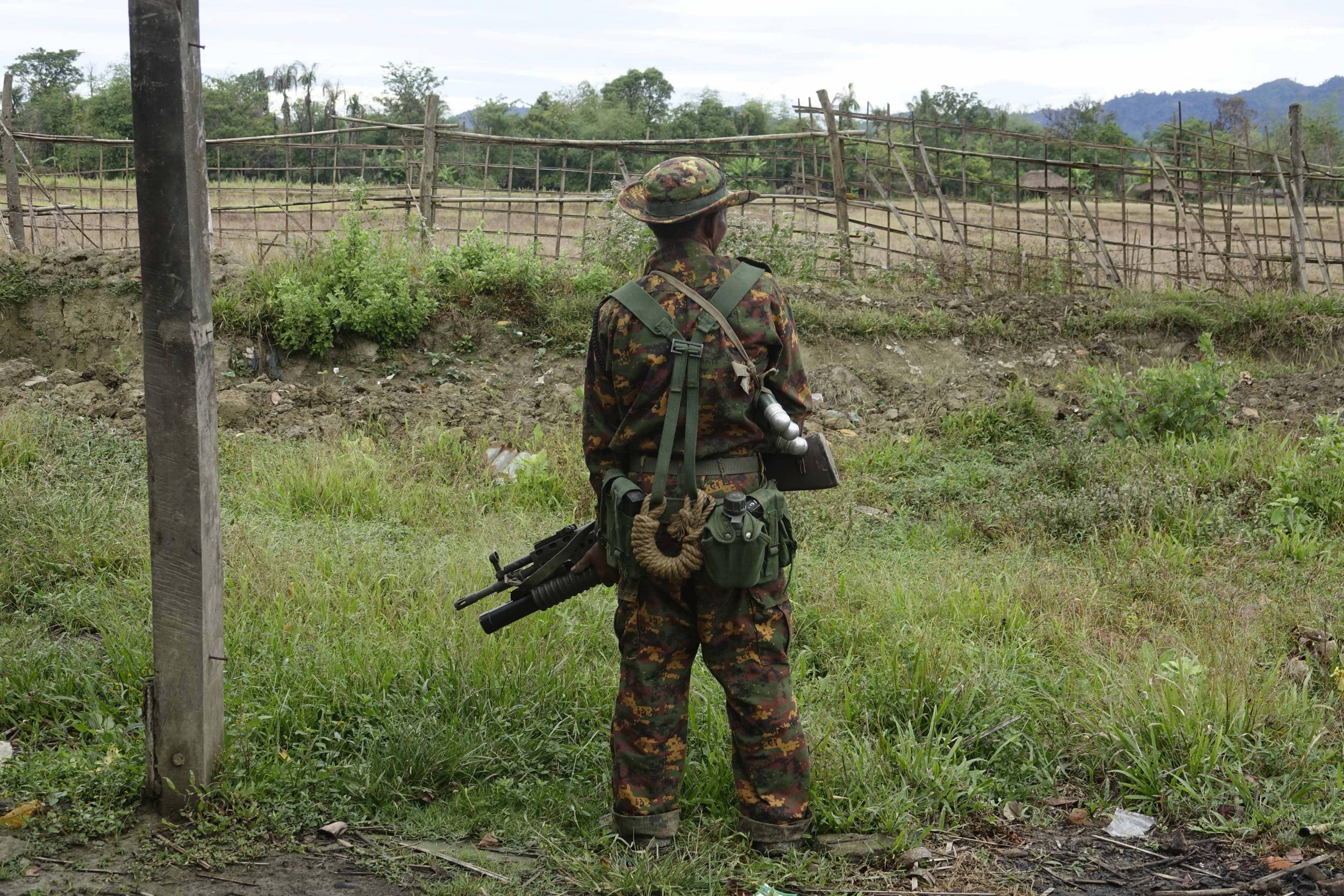Rohingya crisis: Myanmar security forces responsible for killing of 10 Muslims, admits Army chief
Military makes first admission of wrongdoing since launching 'clearance operation' against ethnic minority that has displaced 650,000 people

Your support helps us to tell the story
From reproductive rights to climate change to Big Tech, The Independent is on the ground when the story is developing. Whether it's investigating the financials of Elon Musk's pro-Trump PAC or producing our latest documentary, 'The A Word', which shines a light on the American women fighting for reproductive rights, we know how important it is to parse out the facts from the messaging.
At such a critical moment in US history, we need reporters on the ground. Your donation allows us to keep sending journalists to speak to both sides of the story.
The Independent is trusted by Americans across the entire political spectrum. And unlike many other quality news outlets, we choose not to lock Americans out of our reporting and analysis with paywalls. We believe quality journalism should be available to everyone, paid for by those who can afford it.
Your support makes all the difference.Myanmar’s military has admitted its security forces and Buddhist villagers killed 10 Rohingya Muslims whose bodies were found in a mass grave in a village in troubled Rakhine state.
The statement is the army’s first public acknowledgement of wrongdoing since it launched “clearance operations” against Rohingya in August, prompting more than 650,000 to flee into neighbouring Bangladesh in what the United Nations (UN) has called “ethnic cleansing.”
A statement on the military commander-in-chief’s Facebook page said the Rohingya found in the mass grave had threatened Buddhist villagers and were killed in retaliation.
The UN and other groups have accused the military of widespread atrocities against Rohingya, including killings, rapes, and the burning of homes. But the military has previously denied any wrongdoing by security forces.
The government of Buddhist-majority Myanmar has refused to accept Rohingya Muslims as a minority group, despite many families having lived in the country for generations. They are widely referred to as “Bengalis” and accused of migrating illegally from Bangladesh.
The army described the 10 Rohingya Muslims found in the mass grave as ”Bengali terrorists”. Their bodies were discovered in December near a cemetery in Inn Din village.
“It is true that both the villagers and security forces admitted they killed the 10 Bengali terrorists,” the military statement said. “The army will take charge of those who are responsible for the killings and who broke the rules of engagement. This incident happened because ethnic Buddhist villagers were threatened and provoked by the terrorists.”
Tensions have simmered for decades between Rakhine Buddhists and Rohingya. Hundreds of the minority Muslims were killed in two bouts of violence in Rakhine in 2012, and 120,000 Rohingya remain in camps in the state.
In the wake of the 2012 clashes, some Rohingya began organising a militant group, which killed nine border police officers in an attack in 2016.
On 25 August last, known as the Arakan Rohingya Salvation Army (ARSA), launched wider attacks on Myanmar police and military outposts.
The military responded with “clearing operations” that rights groups say have been accompanied by the rape and murder of Rohingya civilians, whose houses have also been burned down.
About 100 Rohingya children are stranded in Myanmar without their parents after military operations drove 655,000 people into Bangladesh, according to the UN.
Another 60,000 Rohingya children are languishing “almost forgotten” in disease-ridden camps inside Myanmar since being driven from their homes during violence in 2012, said UN children’s agency (UNICEF) spokeswoman Marixie Mercado said.
She told reporters in Geneva on Tuesday that she spent a month in Myanmar’s Rakhine state and visited one camp where “shelters teeter on stilts above garbage and excrement” and four children died of disease within three weeks.
“We hear of high levels of toxic fear in children from both Rohingya and Rakhine communities,” she said, referring to the ethnic Rakhine people, the state’s majority population.
Myanmar government spokesman Zaw Htay told the Thomson Reuters Foundation that authorities were not aware of any children left alone in Myanmar following the exodus to Bangladesh in the last half of 2017.
The government has rejected accusations of ethnic cleansing, blaming most of the violence on insurgents.
Join our commenting forum
Join thought-provoking conversations, follow other Independent readers and see their replies
Comments